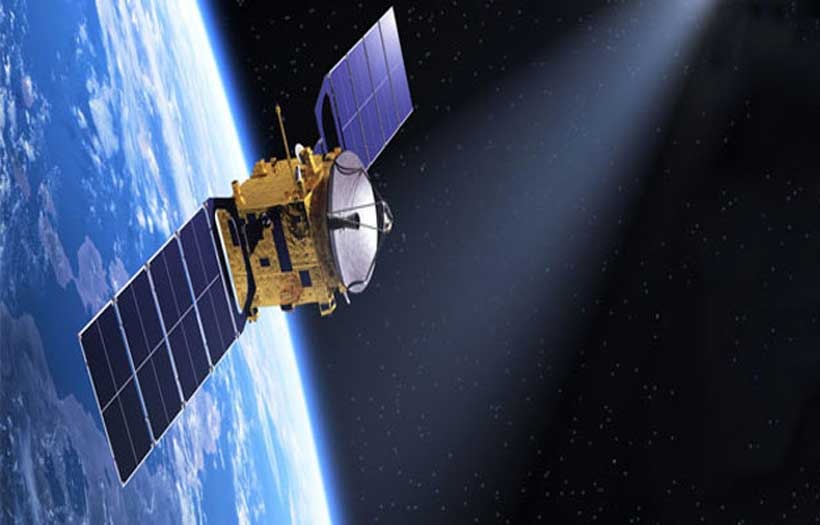Pakistan launched the Pakistan Remote Sensing Satellite on July 31, 2025, using a Chinese Kuaizhou-1A carrier rocket from the Xichang Satellite Launch Centre (XSLC). This event marked another milestone in Pakistan’s space renaissance. This satellite became operational in Low Earth Orbit (LEO), where it will provide high-resolution satellite imagery. This launch continues the legacy of the Space and Upper Atmospheric Research Commission (SUPARCO), which began Pakistan’s space program in the early 1960s. It is a significant milestone in achieving the objectives of the National Space Policy of Pakistan and Space Vision 2047. The fourth launch of the Earth Observing Satellite under the space project URAAN depicts Pakistan’s commitment to using orbits for sustainable development.
According to the Ministry of Foreign Affairs (MOFA) of Pakistan, the development and launch is the result of collaboration between SUPARCO, MICROSAT China, and China Electronics Technology Group Cooperation. Beijing assists Pakistan with critical technology and infrastructure that help Pakistan achieve Sustainable Development Goals (SDGs). Prime Minister of Pakistan, Shehbaz Sharif, expressed his gratitude to Chinese partners and mentioned Pakistan-China friendship as “beyond borders and into outer space, driven by a shared vision to harness space technology for the betterment of humanity”. Moreover, Pakistan’s Minister of Planning and Development Ahsan Iqbal hailed the satellite launch as “beyond the skies”, the epitome of Sino-Pakistan friendship. The Chinese Embassy in Islamabad extended its warm congratulations to Pakistan on the successful joint venture.
It broadens the scope of technological cooperation, particularly in space between the two countries. The training program for sending the first Pakistani astronaut is underway in China, and the astronaut will board China’s Tiangong space station. China-Pakistan space cooperation has multifold implications, which are symbolic, technological, economic, and strategic.
This new launch is a step towards the operationalisation of the National Space Policy of Pakistan. Our Peaceful Space Program is a ground-breaking event and a trend setter in the world of rapid weaponisation of outer space. Pakistan reaffirms the principle of the Outer Space Treaty that space is a global common where states shall cooperate, not compete. Pakistan’s space program fortifies norms of global governance in space. This enhances Pakistan’s position in forums like the UN Committee on the Peaceful Uses of Outer Space (COPOUS), where Pakistan supports the peaceful uses of space. This launch is a soft power projection of Pakistan. It enhances Pakistan’s image as a responsible space-faring nation and gives it a chance to represent the needs of the Global South that the Global North often overlooks. Pakistan can use space diplomacy as a tool of constructive engagement rather than confrontation. Its space program has higher moral ground in contrast to its regional competitor, India, which has tested anti-satellite weapons. India’s militaristic space capabilities pose a security threat to Pakistan, as they affect the strategic stability of South Asia. However, Pakistan continues its commitment to peaceful space uses and seeks international cooperation for the socio-economic development of its people.
Pakistan aims to use satellite imagery for tackling non-traditional security threats like climate change, food insecurity, and urbanization. Real-time monitoring of glacier recession and deforestation will help in early warning of floods, earthquakes, and landslides, which will enhance disaster management. Tracking crop growth, soil quality, and water usage will help in precision agriculture to reduce food insecurity. Satellite imagery will help to measure deforestation, landslides, and earthquakes, which will help in environmental protection. Accurate geospatial mapping will enable the monitoring of infrastructure growth and urban expansion, ultimately supporting urban planning.
Pakistan’s latest space endeavor is not limited to disaster mitigation but signifies its commitment to technological and economic growth. It is a valuable addition to the space program of Pakistan that will have a beneficial spill-over effect on various industries such as Information Technology (IT), telecommunications, material sciences, and renewable energies. Space development can foster an innovative ecosystem, presenting a significant opportunity for the youth bulge in Pakistan. It will impact four major areas of technological development. First, the space program is focused on indigenous development, by which scientists, engineers, and data scientists are being trained. It builds human capital and reduces reliance on foreign cooperation. Second, satellites will catalyze industries such as telecommunication, navigation, and agriculture. Third, Pakistan’s space program encourages public-private partnerships. It will boost local production and enhance the efficiency of entrepreneurs by using data for solutions in logistics, insurance, and climate adaptation. Lastly, it can enhance digital transformation in governance and economic systems through the integration of satellite data with Artificial Intelligence (AI) and big data analytics. Moreover, spatial mapping will help boost the China-Pakistan Economic Corridor (CPEC) to enhance regional trade. Space can serve as a driver of technological leaps that will bring opportunities in the critical development sector, economic growth, and daily governance.
A comprehensive roadmap to invest in research centres and universities and provide them with scholarships to strengthen indigenous capacity. The government can establish the National Geospatial Data Authority, which consolidates satellite data into governance. Public-private partnership is an element of Pakistan’s National Space Policy, for the government shall encourage local IT firms and tech startups. The public awareness program shall highlight the progress of SUPARCO and the significance of satellites in modern times. Pakistan may broaden its technological base by cooperating with other international partners. Pakistan’s foray into space renaissance is not just symbolic but a strategic leap towards survival and sustainable development. Pakistan has used satellites as a tool of resilience against climate disasters, food insecurity, environmental crises, and economic challenges. Pakistan embraces the peaceful applications of satellites, deepening international cooperation to achieve the goals of its National Space Policy. This satellite launch is undoubtedly a significant milestone, and policymakers must harness its full potential for the benefit of ordinary citizens. Pakistan can make substantial progress if it achieves its goal of sustainable development through space technologies.
This article was published in another form at https://strafasia.com/pakistans-space-renaissance-orbits-for-sustainable-development/
Areesha Manzoor is Research Assistant at the Center for International Strategic Studies (CISS), Islamabad.

